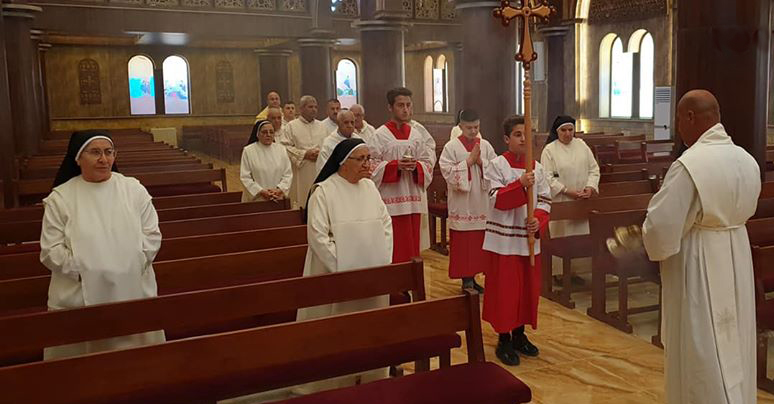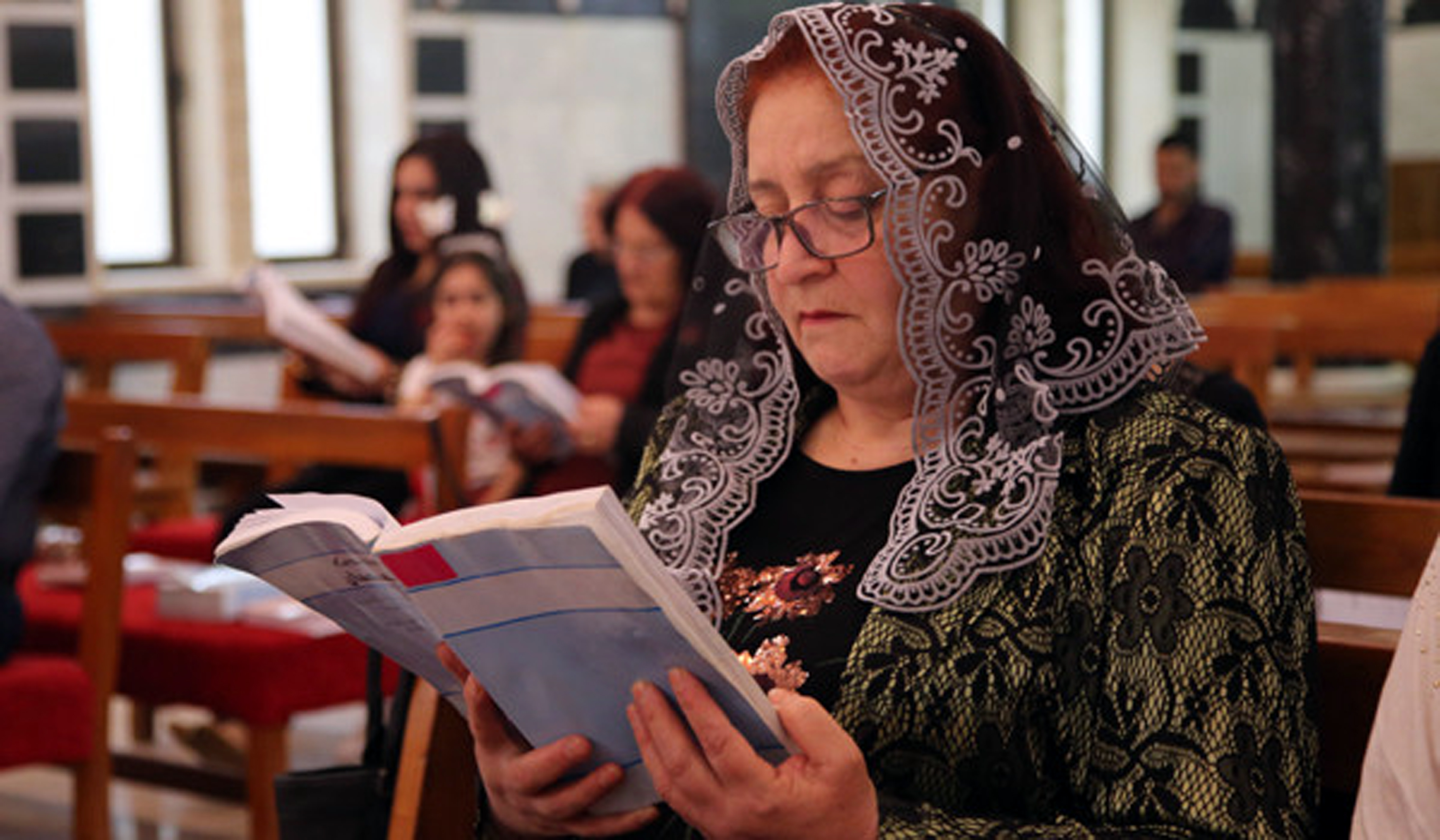Most of the Churches and other Christian places of worship in Iraq don’t have priests any more, and are not frequented by many worshippers as they used to be.
In all of Duhok province, which has a sizable Christian population, there are only eight priests for 39 churches.
In many places of Iraq, places of worship are still in ruins from successive wars.
The causes behind the decline in number of worshippers are numerous: displacement due to the ISIS war, immigration, lack of security, and the erosion of social cohesion.
We have only eight priests for 39 Assyrian churches in Duhok
“We have only eight priests for 39 Assyrian churches in Duhok. There is a big gap; we need tens of priests, especially for the villages. Some priests can visit a village only once per month. At many places, people are compelled to travel to the compelled cities to attend church congregations,” said Philip Dawood, a priest in Duhok.
“Some people can’t afford travel costs,” and that is one of the reasons for the decline in number of worshipers in churches, along with people being rather busy with social media, and that “the faith of some in their religion has become weaker.”
The deterioration of security is the main reason; the Christian regions of Iraq, especially in Nineveh and Duhok, have been arenas of armed conflicts.
In the past few months, due to Turkey’s military operations inside Iraqi territory, tens of families from the border areas have been displaced and more than 10 churches have been closed.
“When we were displaced, there was no church where we were living; we would have to travel to another city, which would take more 40 minutes traveling by car,” said the 45-year-old Muna Hanna Matti.
Muna is from Shingal in Nineveh province. She fled with her family to Duhok’s Smél district six years ago when ISIS militants assaulted the region.
Muna told KirkukNow that they had three churches in Shingal which people regularly visited before ISIS militants upended their lives.
Those three churches, along with more than 80 other churches and other Christian places, were destroyed by ISIS militants. Most of which have not been reconstructed yet.
When ISIS militants took control of Mosul in June 2014, they gave the Christian population three choices: convert to Islam, pay Jiziya (a taxation forced on Christian and Jewish subjects of past Islamic empires), or leave. Most of them left.
the Kurdistan Regional Government built a church in Duhok [...] but it is far from where we live, so we go there once in 15 days
“In 2018, the Kurdistan Regional Government built a church in Duhok for the orthodox Syriacs who were displaced from Shingal and the Nineveh Plain, but it is far from where we live, so we go there once in 15 days,” said Muna.
She opines that one of the reasons for the decline in number of worshippers is immigration.

According to the Federal and Kurdistan Regional governments, most of the displaced Iraqi Christians have not returned to their home regions, and that thousands of families have migrated abroad, among them 24,000 families from Nineveh province alone.
Of a total of 700,000 displaced persons residing in the Kurdistan Region, 7% are Christians.
Khalid Jamal, the head of Christians’ Affairs at the KRG’s Ministry of Endowment and Religious Affairs, told KirkukNow that of the two million Christians who lived in Iraq in the 1990s, less 400,000 remain inside the country; during the ISIS war alone, 250,000 have migrated.
“We have become the victim of the Sunni-Shi’a war in Iraq. It will be difficult for Christians to be able to live in peace again in this country,” Khalid Jamal said.
There are 12 churches in Kirkuk, but currently only one is open.
Some Christians don’t have the desire to become priests, and we don’t force anyone
Regarding the low number of priests, Khalid Jamal explained: “Some Christians don’t have the desire to become priests, and we don’t force anyone.”
There exists the Babel (Babylon) College for theology and philosophy which provides 6-year courses for priesthood.
Linus Odisho, a Christian member of the Duhok Administration Council, thinks that the low number of worshippers at churches is due to political issues, “the political parties don’t treat Christians properly, that’s why they have been subject of threats and displacements tens of times. And there is a lack of security in the Christians regions.”
“Of about two million Christians in Iraq, there are about 300,000 left. I am certain that that number will shrink even more. The solution is that their regions be turned into an autonomous administration, then they can protect themselves. And people will not migrate once there is stability,” Odisho added.
Christianity has the second largest followers in Iraq after Islam.





